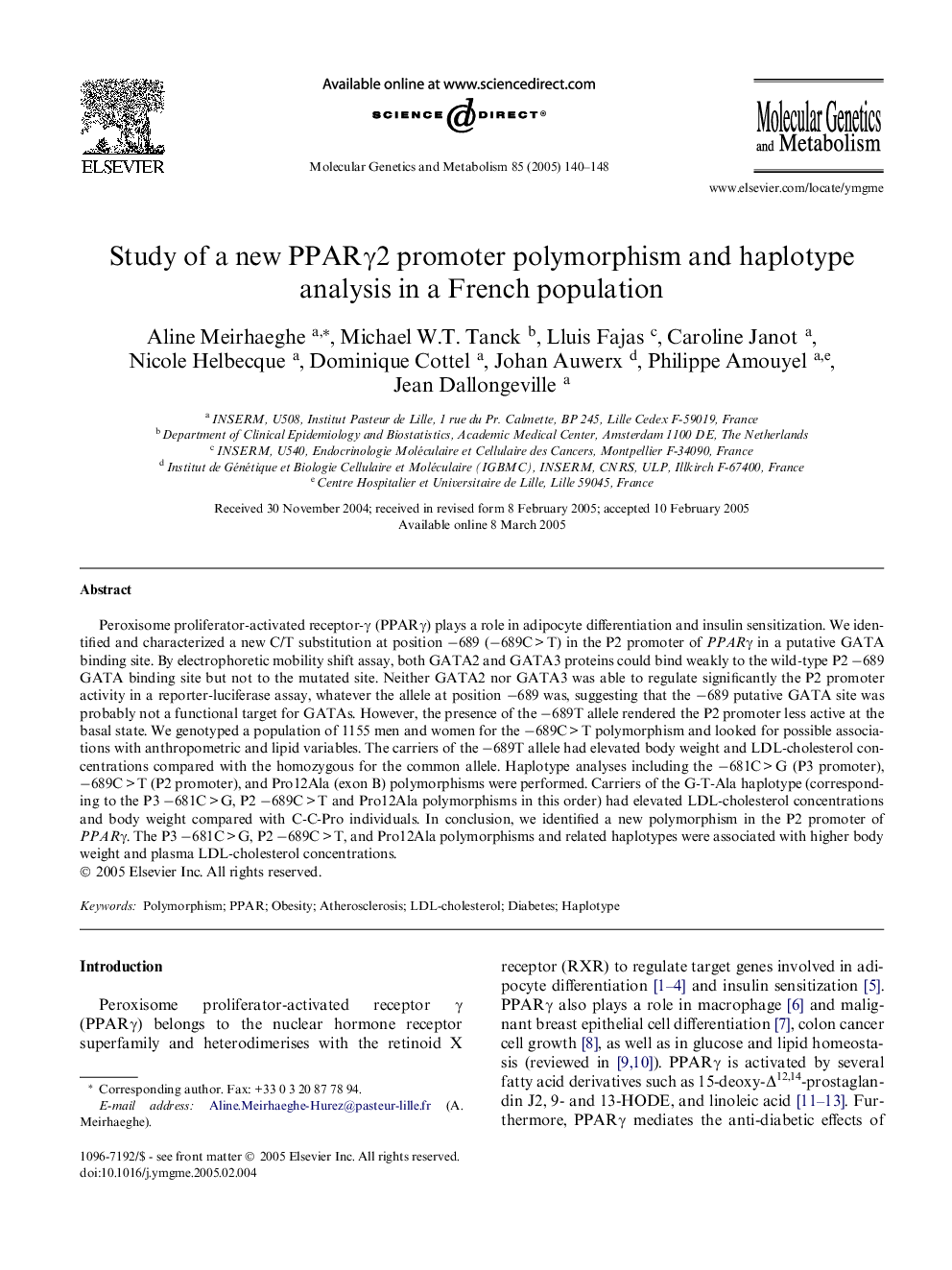| Article ID | Journal | Published Year | Pages | File Type |
|---|---|---|---|---|
| 10834950 | Molecular Genetics and Metabolism | 2005 | 9 Pages |
Abstract
Peroxisome proliferator-activated receptor-γ (PPARγ) plays a role in adipocyte differentiation and insulin sensitization. We identified and characterized a new C/T substitution at position â689 (â689C > T) in the P2 promoter of PPARγ in a putative GATA binding site. By electrophoretic mobility shift assay, both GATA2 and GATA3 proteins could bind weakly to the wild-type P2 â689 GATA binding site but not to the mutated site. Neither GATA2 nor GATA3 was able to regulate significantly the P2 promoter activity in a reporter-luciferase assay, whatever the allele at position â689 was, suggesting that the â689 putative GATA site was probably not a functional target for GATAs. However, the presence of the â689T allele rendered the P2 promoter less active at the basal state. We genotyped a population of 1155 men and women for the â689C > T polymorphism and looked for possible associations with anthropometric and lipid variables. The carriers of the â689T allele had elevated body weight and LDL-cholesterol concentrations compared with the homozygous for the common allele. Haplotype analyses including the â681C > G (P3 promoter), â689C > T (P2 promoter), and Pro12Ala (exon B) polymorphisms were performed. Carriers of the G-T-Ala haplotype (corresponding to the P3 â681C > G, P2 â689C > T and Pro12Ala polymorphisms in this order) had elevated LDL-cholesterol concentrations and body weight compared with C-C-Pro individuals. In conclusion, we identified a new polymorphism in the P2 promoter of PPARγ. The P3 â681C > G, P2 â689C > T, and Pro12Ala polymorphisms and related haplotypes were associated with higher body weight and plasma LDL-cholesterol concentrations.
Related Topics
Life Sciences
Biochemistry, Genetics and Molecular Biology
Biochemistry
Authors
Aline Meirhaeghe, Michael W.T. Tanck, Lluis Fajas, Caroline Janot, Nicole Helbecque, Dominique Cottel, Johan Auwerx, Philippe Amouyel, Jean Dallongeville,
